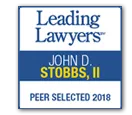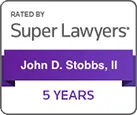The Pretrial Fairness Act, which is part of the Safety, Accountability, Fairness and Equity-Today Act, commonly known as the SAFE-T Act, will completely end the use of money bond and transform Illinois’ pretrial decision-making process throughout the whole state including Edwardsville, IL within Madison County.
In the prior system, judges set an amount of “cash bail” or “money bond” for detained individuals. Detainees could be released prior to a trial if they paid the amount of bail. In the new system, the role of cash payments will be eliminated and judges will determine whether detained individuals pose a risk if released. Pretrial release can be denied by a judge after a hearing, “when it is determined that the defendant poses a specific, real and present threat to a person, or has a high likelihood of willful flight.”
While the elimination of cash bond seems like a win for individuals charged with crimes, the reality is that prosecutors have learned to use the language of the Act to their advantage. Under the Pretrial Fairness Act, the State must now meet a higher burden of proof before the Court can find that someone should remain detained pretrial. Unwary criminal defense attorneys do not know the intricacies of the Act to require the State to meet its high burden, and as a result their clients are detained pre-trial.
Before requesting pretrial release under the Pretrial Fairness Act, an analysis needs to be done to ensure that that the Defendant is released. First and foremost, a determination needs to be made regarding as to whether or not the charge is a detention eligible offense based on safety concerns.
Which crimes are eligible for denial of release after a first arrest?
Some felonies and a small number of misdemeanors are eligible for denial of release after a first arrest if the state proves that the arrested person poses a “real and present threat to any person or persons or the community, based on the specific, articulable facts of the case.” These charges are:
-
- All forcible felonies, as defined in 110-6.1: “treason, first degree murder, second degree murder, predatory criminal sexual assault of a child, aggravated criminal sexual assault, criminal sexual assault, armed robbery, aggravated robbery, robbery, burglary where there is use of force against another person, residential burglary, home invasion, vehicular invasion, aggravated arson, arson, aggravated kidnaping, kidnaping, aggravated battery resulting in great bodily harm or permanent disability or disfigurement or any other felony which involves the threat of or infliction of great bodily harm or permanent disability or disfigurement;”
- All non-probationable, non-forcible felonies (the most common are drug sales that involve large quantities of drugs or that happen near a school, church, or other protected place, and repeated DUIs.);
- Stalking and Aggravated Stalking;
- Violations of Orders of Protection, Civil No Contact Orders, or Stalking No Contact Orders;
- Domestic Battery and Aggravated Domestic Battery;
- All sex crimes (including all forms of criminal sexual assault, criminal sexual abuse, child pornography related charges, and various charges relating to sexual misconduct with children and human trafficking);
- An additional enumerated list of offenses, which include:
- Discharge of a firearm (both aggravated discharge and reckless discharge);
- Offenses related to gun sales and purchases, as well as non-probationable gun possession charges;
- Human trafficking and involuntary servitude;
- Reckless homicide and involuntary manslaughter;
- Child abduction;
- Felony child endangerment;
- Hate crimes;
- Aggravated unlawful restraint;
- Threatening a public official;
- Felony animal cruelty and torture charges;
- Aggravated battery with a deadly weapon;
- DUI in various circumstances (when there is great bodily harm or death, when the accused is driving a school bus, when the accused has a previous reckless homicide conviction, and when there is bodily harm to a child); and
- Attempts to commit any of the above offenses.
It is critical to keep in mind that detention-eligible does not mean detained. If the prosecutor wants to jail someone, the following steps occur:
- The prosecutor must file a written petition stating what threat the person poses or why they believe the person is highly likely to intentionally evade prosecution, and formally request a detention hearing;
- The judge may hold the hearing immediately or grant up to a 48 hour continuance for both sides to prepare for this hearing (24 hours for class 4 felonies and misdemeanors). The arrested person can be held or released during this time as decided by the judge; and
- The state must succeed at the detention hearing, and meet the standards for detention.
Frequently Asked Questions about the Pretrial Fairness Act
Will the police still be allowed to arrest people?
Yes. Police will still make the decision about who to arrest if they suspect someone of breaking the law. For many low-level charges or in situations where a person isn’t posing an obvious threat to themselves or anyone around them, police will issue tickets instead of taking people into police custody. Rather than having to pay a fee like you would for a parking ticket, these tickets will have a court date on them requiring you to appear in court on that day in front of a judge.
What will happen if I miss a court date?
If you miss a court date, a judge can either let you know that you missed court by sending you a notice or they can issue a warrant for your arrest. If you receive a notice saying you have missed a court date, it is important to resolve the issue as soon as possible to avoid having a warrant issued for your arrest.
If I get arrested, could I still be jailed while awaiting trial?
Yes. Judges will still be able to jail people when they are charged with serious crimes and are found to pose a threat to another person or the community or if they believe a person is likely to flee prosecution. Most people will be released and no one will have to pay a money bond to be released from jail.
What will happen if I’m arrested again after I’ve been released pretrial for a different charge?
If you are arrested for a new charge while you are already on pretrial release, you can be temporarily jailed. A judge will hold a hearing to decide if you will be jailed until trial or released.
Could I be arrested for violating the terms of Electronic Monitoring?
Yes. Whenever someone violates the terms of their electronic monitoring, a judge can review the violation and decide on a response, including up to 30 days in jail. Additionally, if someone removes or damages their electronic monitoring device or tries to flee the jurisdiction, they could be charged with a felony called “escape” from electronic monitoring. If you must leave your home while on electronic monitoring, it’s important to talk with your lawyer about how to get permission in advance.
What will happen if I violate the rules a judge sets for me before trial?
If you violate the rules a judge sets for you before trial, there may be a hearing to determine what the consequence will be for breaking those rules. That consequence can be a warning, a change in the rules of your release, or up to 30 days in jail. If you are rearrested for a new case before trial, you may be jailed until your trial.
Additional Resources
The Seven Essential Elements of the Pretrial Fairness Act (PDF Download)




